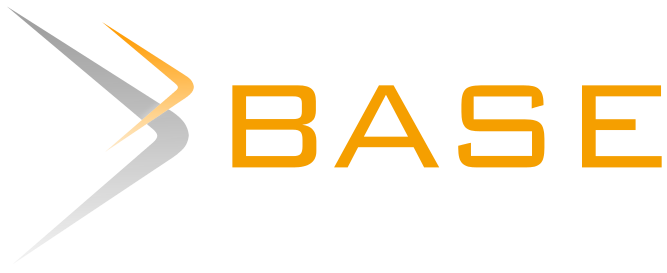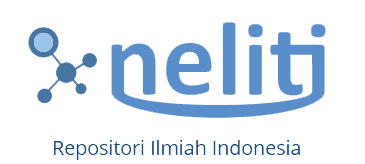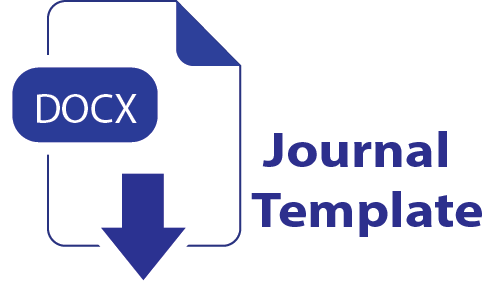PENGARUH PELATIHAN, PENEMPATAN DAN KINERJA KELOMPOK PAKAR SECARA PARSIAL DAN SECARA SIMULTAN TERHADAP CAPACITY BUILDING DPRD OGAN KOMERING ILIR
DOI:
https://doi.org/10.35908/jeg.v5i1.952Abstrak
The purpose of the research is specifically to obtain the results of the analysis of the influence of training variables, placement, expert group performance on the capacity building of DPRD partially or simultaneously. The research method uses descriptive and verification surveys, field data collection using questionnaire, interview and documentation techniques. This research is associative research, where in this study there are variables that are related and can affect other variables. The study population was 85 employees at the OKI DPRD Secretariat, taken as a sample of 71 employees. Processing data using SPSS 23 analysis tools. Testing the data using the t test, that training affects capacity building with t count 5.009> t table 1.993, there is an influence of placement on capacity building, with 3,883> t table 1,993, performance affects capacity building with t count of 2,149> t table 1,993 and training, placement and performance affect capacity building with F count 10,980> F table 2,683. The red thread of research is that Expert Group Training, Expert group Placement, Expert group performance has a positive and significant effect on the capacity building of Ogan Komering Ilir District DPRD both partially and simultaneously. Strategies to increase DPRD capacity building can be done by providing training before expert group placements on DPRD equipment.
Â
Keywords: training, placement, performance and capacity building
Referensi
Andes Pirmansyah, 2010, Pengaruh Pendidikan dan Pelatihan (Diklat) Terhadap Pengembangan Karir Karyawan Pada Bank Pd. BPR Sarimadu Bangkinang. Thesis, Universitas Islam Negeri Sultan Syarif Kasim Riau.
Anni Milen, 2004, Pegangan Dasar Pengembangan Kapasitas. Diterjemahkan secara bebas. Yogyakarta, Pondok Pustaka Jogja.
Arikunto, Suharsimi, 2014, Prosedur Penelitian, Suatu Pendekatan Praktik, Jakarta, Penerbit PT Rineka Cipta.
Azwar, Syaifuddin, 2009. Metode Penelitian. Yogyakarta. Pustaka Pelajar
Bahri. Samsul, Zamzam Fakhry, 2014, Model Penelitian Kuantitatif berbasis SEM Amos, Yogyakarta, Penerbit DeePublish
Bernadin, H., dan Russel, Joyce, E.A, 1993, Human Resources Management, Singapore, Mcgraw Will inc
Berry, Lilly M & John P. Houston. 1993. Psychology At Work. USA: Brown & Benchmark
Billy Renaldo Potale, Viktor Lengkong, Silcyljeova Moniharapon, 2016, Pengaruh Proses Rekrutmen Dan Seleksi Terhadap Kinerja Karyawan Pada Pt Bank Sulutgo, Jurnal Berkala Ilmiah Efisiensi Volume 16 No. 04 Tahun 2016
Creech, Bill, 1996, Lima Pilar, Manajemen Mutu Terpadu, Jakarta, Penerbit BinaRupa Aksara
Dessler, Gary. 2009. Human Resource Management, 8th Edition. New Jersey: Aprentice-Hall, Inc.
Drastari, Aning. 2014. Pengaruh Penempatan dan Pelatihan Terhadap kinerja Karyawan PT. PLN (Persero) Distribusi Jawa Timur Area Malang. Tesis , Manajemen, Fakultas Ekonomi, Universitas Negeri Malang.
Ellen, Steph. eHow Blog, 2010; Principles and Methods of Research; Ariola et al. (eds.); 2006 diakses dari http://tatangmanguny.wordpress.com/2010/04/19/ukuran-sampel-rumusslovin/#more-1104 tanggal 19 April 2010
Esa Devi Safiani, 2014, Pembangunan Kapasitas (Capacity Building)Usaha Mikro, Kecil Dan Menengah (UMKM) Di Kota Bandar Lampung Dalam rangka Menghadapi Masyarakat Ekonomi Asean 2015. Pemerintah Kota Bandar Lanpung.
Firdaus, Zamzam Fakhry, 2018 Aplikasi Metodologi, Yogyakarta, Penerbit Deepublish
Gatewood, R. and Field, H. 2001, Human Resource Selection. Harcourt Brace & Company, Orlando.
Ghozali,Imam, 2001. Aplikasi Analisis Multivariate dengan Program SPSS, Edisi 3. Semarang: Badan Penerbit Universitas Diponegoro.
Gomes, Faustino Cardoso. 2003. Manajemen Sumber Daya Manusia. Yogjakarta: Penerbit Andi Offset.
Grindle, M.S., (editor), 1997, Getting Good Government : Capacity Building in the Public Sector of Developing Countries, Boston, MA: Harvard Institute for International Development.
Handoko, T Hani, 2011, Manajemen Personalia & Sumber Daya Manuasi, Yogyakarta, Penerbit FE Bisnis, UGM
Hasibuan, Malayu S.P. 2008. Manajemen Sumber Daya Manusia, Edisi Revisi. Jakarta,Penerbit Bumi Aksara.
Hendriani, S., Efni, Y., & Fitriani, A. (2013). Pengaruh Pendidikan Dan Pelatihan, Kompetensi Terhadap Kinerja Karyawan PT. Bank Riau Kepri Kantor Pusat Pekanbaru. Jurnal Pendidikan Ekonomi dan Bisnis, 5(2), 133-144.
Imam Hardjanto, 2006,Pembangunan Kapasitas Lokal (Local Capacity Building), Malang, Program Pascasarjana Universitas Brawijaya.
Juanda, Bambang, 2009, Metodologi Penelitian Ekonomi dan Bisnis, Edisi Kedua, Bogor, Penerbit IPB Press
Kasim, Azhar. 1993. Pengukuran Efektivitas Organisasi. Jakarta: Fakultas Ekonomi Universitas Indonesia
Kusnendi, 2008, Model-Model Persamaan Struktural Satu dan Multigroup sampel dengan Listrel, Bandung, Penerbit Alfabeta
Mahsun, M. (2006). Pengukuran kinerja sektor publik. Yogyakarta: Penerbit BPFE.
Mathis, Robert.L. and Jackson, J.H., 2011. Human Resource Management: Essential Perspectives. Cengage Learning.
Marnisah, Luis, 2019. Hubungan Industrial dan Kompensasi, Yogyakarta: Deepublish
Mita Widyastuti , 2010,Peningkatan Kapasitas Lembaga (Capacity Building) DPRD Kabupaten/Kota. Vol 11, No 01,
Mowday, R.T., 1996. Expectancy theory approaches to faculty motivation. New Directions for Teaching and Learning, 1982(10), pp.59-70
Mulyono, A. 2015. Pengembangan Kapasitas Aparatur Sipil Negara di Daerah. JKMP (Jurnal Kebijakan dan Manajemen Publik), 3(1), 17-34.
Rivai, Veithrizal., & Sagala, E. J. (2013). Manajemen Sumber Daya Manusia untuk Perusahaan: Dari Teori ke Praktik Edisi Kedua.
Robbins, Stephen.F. 1996, Managing Organizational Conflict, Prentice-Hall, Eaglewood Cliff, Newyork
Sebastian Rainsch, (2004), Dynamic Strategic Analysis: Demystifying Simple Success Strategies, Wiesbaden: Deutscher Universitasts-Verlag.
Sekaran, Uma, 2003, Research Methods For Bussiness, Shoutern Illinois Univercity at Carbondale
Shaputra, A. R., & Hendriani, S. (2015). Pengaruh Kompetensi, Komitmen Dan Pengembangan Karir Terhadap Kinerja Karyawan PT. Bank Rakyat Indonesia (Persero) Kantor Wilayah Pekanbaru. Jurnal Tepak Manajemen Bisnis, 7(1), 1-17.
Simanjuntak, Payaman P. 2011. Manajemen Hubungan Industrial. Jakarta: Lembaga Penerbitan Fakultas Ekonomi UI.
Sugiyono. 2012. Metode Penelitian Kuantitatif. Bandung, Penerbit CV. Alfabeta..
Sulistiyani, Ambar T. dan Rosidah.2009., Manajemen Sumber Daya Manusia, Yogyakarta: Penerbit Graha Ilmu.
Supriyono, Bambang, dkk, 2012, Capacity Building, Malang, Penerbit Universitas Brawijaya Press.
Suwatno, Tjutju Yuniarsih, 2008, Manajemen Sumber Daya Manusia Teori, Aplikasi dan
Timpe, Dale., 2000. Kinerja, Seri Sumber Daya Manusia. Jakarta: Gramedia Tondok, Marselius Sampe. Versi online http://www. scribd. com.
Zamzam, Fakhry, Havis Aravik, 2016. Manajemen SDM Berbasis Syariah, Bogor: CV. RWTC Success
Zamzam, Fakhry, 2015, Teknik Dasar Penulisan Proposal Tesis, Palembang, Penerbit Noerfikri
Zamzam, Fakhry, 2014, Good Governance Sekretariat DPRD, Yogyakarta, Penerbit DeePublish
Zamzam, F. (2016). Sinergisme Pengaruh Pengembangan Karier Dan Iklim Organisasi Melalui Moderasi Motivasi Kerja Terhadap Implementasi Good Governance Sekretariat DPRD Dalam Wilayah Sumatera Selatan. Jurnal Ecoment Global; Kajian Bisnis dan Manajemen, 1(1), 77-92.
Zamzam, F. (2016). Pengaruh Pengembangan Karier dan Iklim Organisasi terhadap Kinerja Pegawai Sekretariat DPRD Kabupaten OKI dengan Variabel Kepuasan Kerja sebagai Intervening. Ekonomica Sharia, 1(2), 1-12.
Unduhan
Diterbitkan
Cara Mengutip
Terbitan
Bagian
Lisensi
Authors who publish with this journal agree to the following terms:
- Authors retain copyright and grant the journal right of first publication with the work simultaneously licensed under a Creative Commons Attribution License   that allows others to share the work with an acknowledgement of the work's authorship and initial publication in this journal.
- Authors are able to enter into separate, additional contractual arrangements for the non-exclusive distribution of the journal's published version of the work (e.g., post it to an institutional repository or publish it in a book), with an acknowledgement of its initial publication in this journal.
- Authors are permitted and encouraged to post their work online (e.g., in institutional repositories or on their website) prior to and during the submission process, as it can lead to productive exchanges, as well as earlier and greater citation of published work










